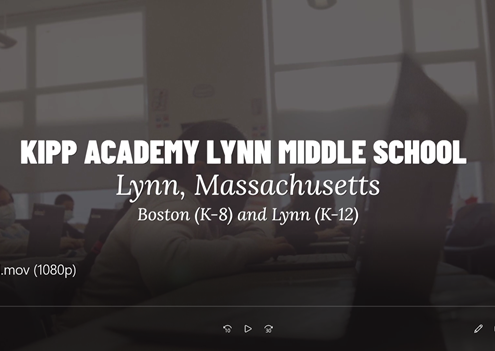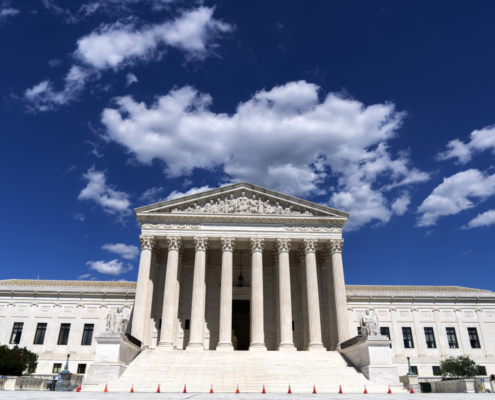METCO’s 50th Anniversary Focuses Attention on Pioneer’s Call to Expand & Improve the Program
/0 Comments/in Blog, Blog: Education, Blog: School Choice, Featured, Related Education Blogs, School Choice /by Editorial Staff Share on Facebook
Share on Twitter
Share on
LinkedIn
+
The recent 50th anniversary of the Metropolitan Council for Educational Opportunity (METCO) has drawn attention to the program, which gives about 3,300 Boston and Springfield students the chance to attend high-performing suburban schools, and to findings from two Pioneer Institute studies about METCO.
One of the Pioneer studies was cited in a lengthy feature on The 74, an education news site, and a July 31 Boston Globe editorial echoed Pioneer’s recommendations. These include that the state commission a gold-standard study to compare the performance of METCO students to those who remain on the waitlist and reform the program to make processes, like the one used to move children off the 9,000-student waitlist, more transparent and accountable.
Both publications noted that program participants, more than three-quarters of whom are African-American or Latino, dramatically outperform their Boston and Springfield Public Schools counterparts in terms of the percentage of students who achieve proficiency on state tests, college attendance, college success, and percentage of college graduates going on to graduate school. METCO graduation rates are far better than those in Boston and Springfield, and even outpace state averages.
Despite its success, per-pupil funding for METCO fell by more than 18 percent between 2007 and 2014. The time has come to correct that and reposition METCO to achieve its full potential.
Related posts:

Accelerating Learning at KIPP
KIPP Academy Charter School is working hard to ensure that all students have access to high-quality instruction, especially as children everywhere struggle with post-COVID learning recovery. In this video, KIPP Academy Executive Director Nikki Barnes and KIPP Academy Lynn Middle School Principal Jimmy Seter allowed us into their in-depth discussion of the principles, objectives and strategies they use to foster an environment of encouragement, informed guidance, learning growth, and equity.

Study Finds Continued Growth in Education Tax-Credit Scholarship Programs
Education tax credits grew increasingly popular in 2021, with four more states enacting programs. There are now 28 tax-credit scholarship (TCS) programs in 23 states, and they serve more than 325,000 students, according to a new study published by Pioneer Institute.

EdChoice’s VP Leslie Hiner on Landmark SCOTUS Decisions for School Choice
This week on “The Learning Curve," co-hosts Cara Candal and Gerard Robinson talk with Leslie Hiner, Vice President of Legal Affairs and Director of Legal Defense & Education Center with EdChoice. They discuss the the landmark U.S. Supreme Court (SCOTUS) decision in Brown v. Board of Education, among the most important in the nation’s history, and how Brown’s call for racial access and equity in K-12 education has helped inform the work and advocacy of the school choice movement.

Linda Chavez on Hispanic Immigration, Assimilation, & Civic Education in America
This week on “The Learning Curve," co-host Cara Candal talks with Linda Chavez, a senior fellow at the National Immigration Forum and the author of Out of the Barrio: Toward a New Politics of Hispanic Assimilation.

Parent Advocate Virginia Walden Ford on Civil Rights, School Choice, & the D.C. Voucher Program
This week on “The Learning Curve," co-host Gerard Robinson and guest co-host Derrell Bradford talk with Virginia Walden Ford, education advocate and author of Voices, Choices, and Second Chances, and School Choice: A Legacy to Keep. She shares her experiences growing up and desegregating high schools in Little Rock, Arkansas in the mid-1960s, and the lessons she carried forward in her school choice advocacy in Washington, D.C.

Andrew Campanella on National School Choice Week
This week on “The Learning Curve," co-hosts Gerard Robinson and Cara Candal talk with Andrew Campanella, the president of National School Choice Week. They discuss why 2021 was called the “Year of School Choice,” and the implications of more academic options for K-12 education reform across America.

Study Finds Massachusetts Would Benefit from Adopting Education Savings Accounts
Massachusetts provides fewer options for students to be educated outside their assigned school districts than most other states do, and educational savings accounts (ESAs) offer an effective tool for giving students additional opportunities, according to a new study published by Pioneer Institute.

AEI’s Ian Rowe on School Leadership, Civic Education, & Upward Mobility
This week on “The Learning Curve," co-hosts Gerard Robinson and Cara Candal talk with Ian Rowe, a senior fellow at the American Enterprise Institute, where he focuses on education and upward mobility, family formation, and adoption.

Virtual Learning Grows During COVID
Virtual learning in K-12 education continues to grow due to the health threat caused by coronavirus variants and the assistance this learning model can provide to at-risk students, according to two papers released today by Pioneer Institute.

Institute for Justice’s Michael Bindas on the SCOTUS Oral Arguments
This week on “The Learning Curve," co-hosts Gerard Robinson and Cara Candal talk with Michael Bindas, a senior attorney with the Institute for Justice, who represents the lead plaintiffs in the U.S. Supreme Court case, Carson v. Makin.

Pioneer Institute Files Amicus Curiae Brief in U.S. Supreme Court School Choice Case
Pioneer Institute has filed an amicus curiae brief in Carson v. Makin urging the Supreme Court of the United States to strike down a provision of Maine law. The Court will hear oral arguments in Carson this morning (December 8) at 10 am. The Maine law being challenged allows districts that don’t have their own schools to contract with a school or pay for students that choose to attend public or private schools, but explicitly excludes religious schools.

Urban Institute’s Dr. Matthew Chingos on the Year of School Choice & the Student Loan Debt Crisis
This week on “The Learning Curve," co-hosts Gerard Robinson and Cara Candal talk with Dr. Matthew Chingos, who directs the Center on Education Data and Policy at the Urban Institute. They discuss the “Year of School Choice,” the welcome 2021 trend of states across America expanding or establishing private school choice programs; as well as the student debt crisis in higher education.

Lipan Apache Tribe’s Pastor Robert Soto on Native American Heritage Month & Religious Liberty
This week on “The Learning Curve," co-hosts Gerard Robinson and Cara Candal talk with Pastor Robert Soto, a Lipan Apache religious leader and award-winning feather dancer who has successfully upheld his Native American cultural heritage and religious liberties in federal courts. As the country celebrates Native American Heritage Month, Pastor Soto shares his personal journey as a religious leader and describes the Lipan Apache Tribe.

Maine Tries to Ignore a Clear Supreme Court Ruling on Education
As the U.S. Supreme Court takes up Carson v. Makin, the facts are clear. Maine has chosen to subsidize private education. As such, it cannot disqualify all religious schools from receiving public dollars under its school choice program.

Match Charter Public School Founder Mike Goldstein on School & Teacher Prep Reform
This week on “The Learning Curve," co-hosts Gerard Robinson and Cara Candal talk with Mike Goldstein, the founder of the MATCH Charter School and MATCH Teacher Residency in Boston.

ASU’s Julie Young, Virtual Schooling Pioneer, on Digital Learning during COVID-19
This week on “The Learning Curve," co-host Cara Candal talks with Julie Young, ASU Vice President of Education Outreach and Student Services, and Managing Director of ASU Prep Academy and ASU Prep Digital. They discuss the implications of COVID-19’s disruption of American K-12 education and the future of digital learning.

The Institute for Justice’s Michael Bindas on the SCOTUS, Carson v. Makin, & Expanding School Choice
This week on “The Learning Curve," co-hosts Cara Candal and Gerard Robinson talk with Michael Bindas, a senior attorney with the Institute for Justice (IJ). They discuss IJ’s 2020 landmark U.S. Supreme Court win in Espinoza v. Montana Department of Revenue, and its implications for state Blaine Amendments, bigoted legal barriers that have blocked religious liberty and school choice for over a century, as well as the Maine school tuitioning case, Carson v. Makin, which was recently granted certiorari.

Nina Rees on the 30th Anniversary of Charter Public Schools in America
This week on “The Learning Curve," Gerard and Cara celebrate the 30th anniversary of charter schools with Nina Rees, President and Chief Executive Officer of the National Alliance for Public Charter Schools.



